


By Sodiq Adewale Chocomilo
Traditions can be described as inherited, long-standing social customs or religious practices. We refer to “traditions” when we state something is a historical belief, a folktale, or a behavior that is widely acknowledged as such.

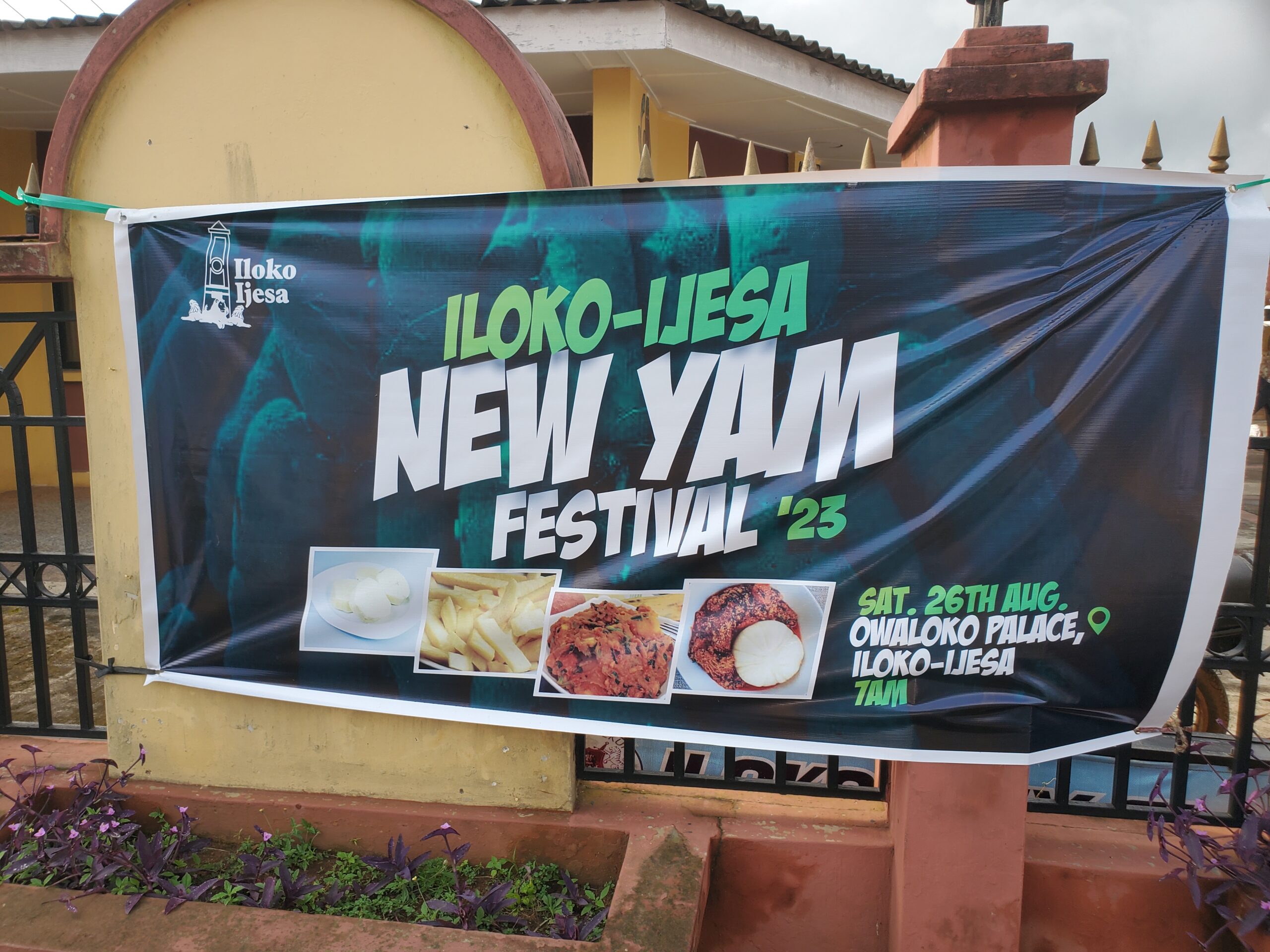
No town exists without historical customs or rituals that are based on tradition. Although civilization may have lessened these traditions’ influence, they haven’t completely disappeared or erased.
Some Yoruba villages are making every effort to save the practice of their founders, forefathers, or ancestors from going extinct despite the strong effect of civilization on our culture and customs.
Every year, they still get together to dine and drink as well as to follow the same socio-religious route as their ancestors. The story of Iloko-Ijesa is not different from other Yoruba towns like Oyo, Osogbo, Ile-Ife, and others.

In order to join the king, high chiefs, natives, and guests in celebrating the event in Iloko-Ijesa kingdom, WITHIN NIGERIA traveled to one of the ancient towns in Osun State.

On Saturday morning, when this reporter arrived at the palace of His Royal Majesty, Oba Olusayo Akeem Ogungbangbe, the paramount ruler of Iloko-Ijesa kingdom, he saw tents and people infront of the palace especially young people from the town running erratically in anticipation of the event.
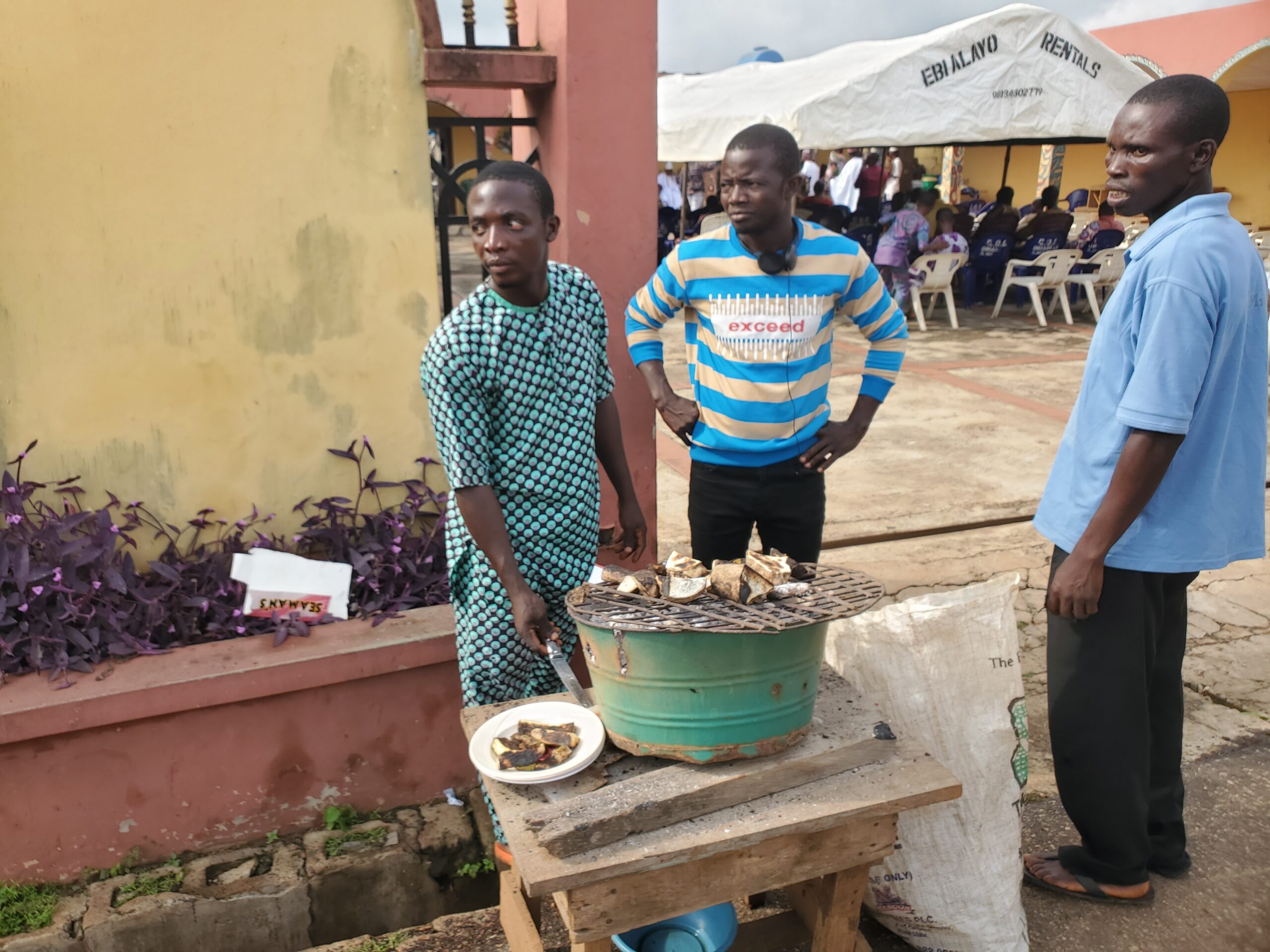
Two young individuals were seen roasting yam while others, particularly ladies, were seen dishing out cuisine made from Yam to a big table not too far from the high table as the people waited for the arrival of Oba Akeem Olusayo Ogungbangbe, the paramount ruler of Iloko-Ijesa.
The monarch arrived and was warmly received by his drummers, chiefs, guests, and natives who had gathered outside to welcome him before the celebration began.
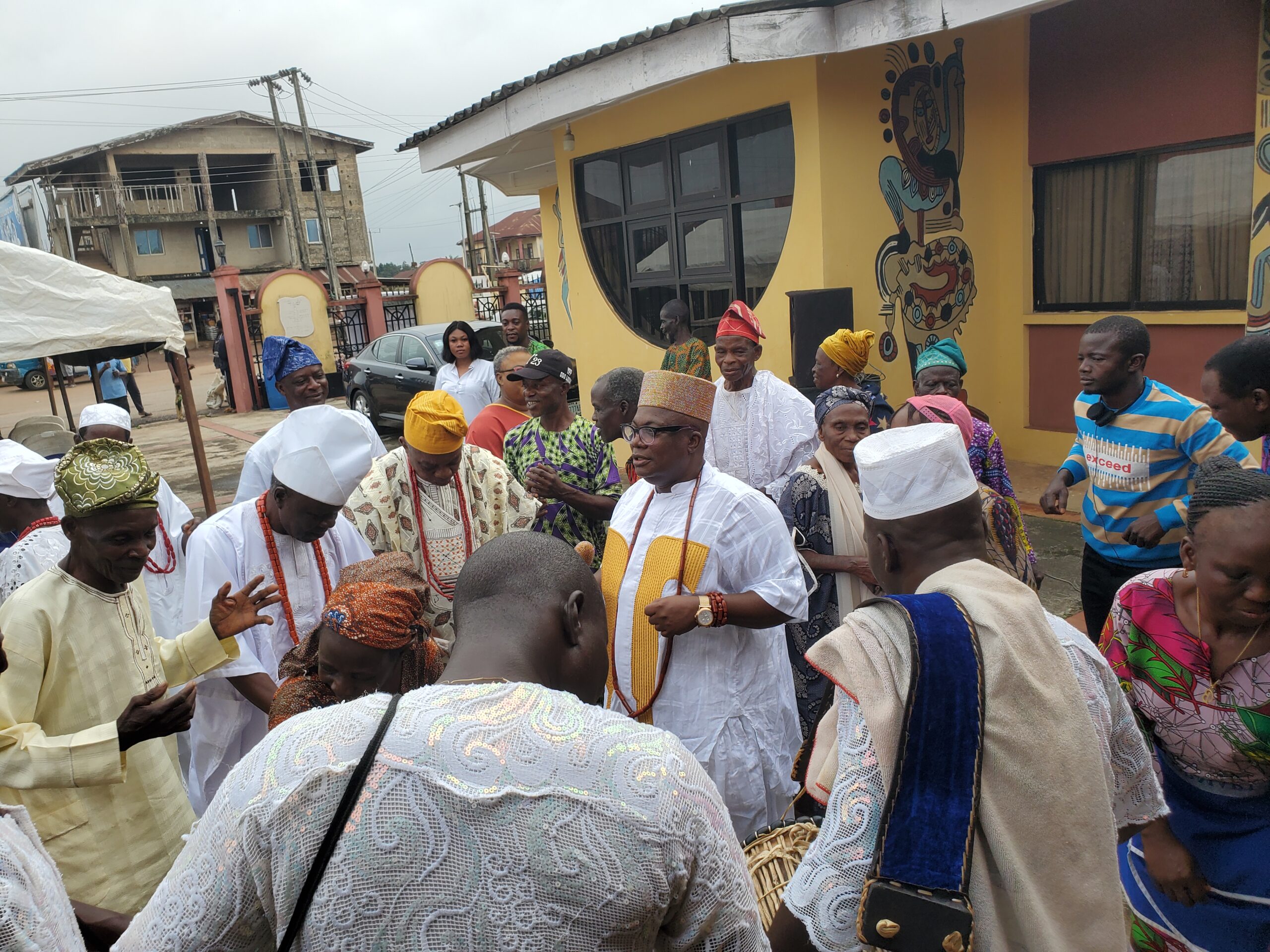
Oba Akeem Olusayo Ogungbangbe, the paramount ruler of Iloko-Ijesa kingdom, danced toward a white structure known as Ile-Ase with his drummers, chiefs, guests, and people.
When this reporter inquired, he was told that the white building known as Ile-Ase is home to the alleged spot Obalogun, the valiant warrior who guarded Iloko-Ijesa from enemies and invaders, entered.
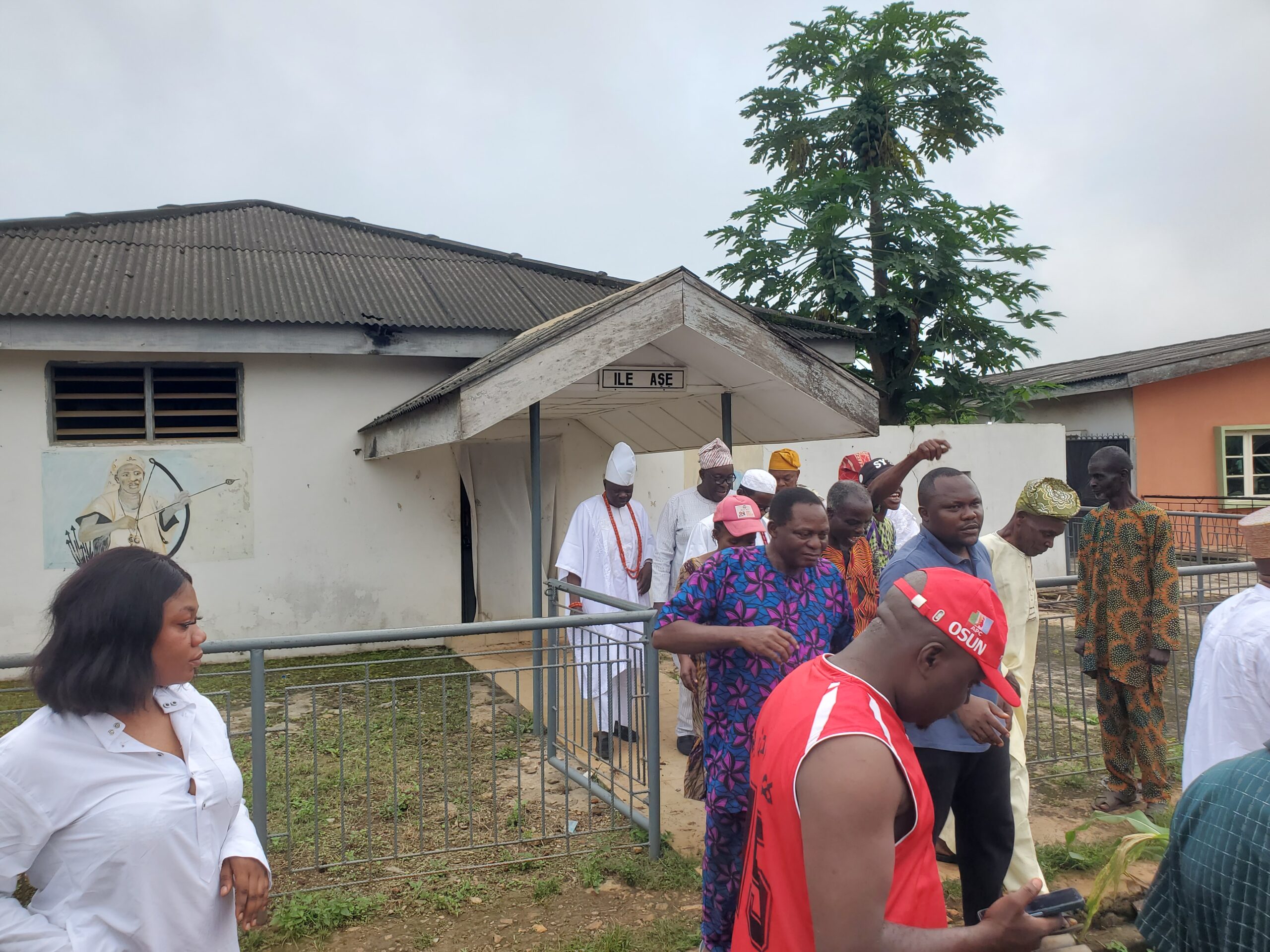
The monarch and others danced for a while while singing songs to arouse the spirit of Obalogun to seek his help in protecting the land from adversaries. Before going to the palace, Oba Olusayo Akeem Ogungbangbe and others danced to the opposite side of the town which is few meters away from Aragba Square.
Following the opening prayers led by one of the high chiefs, leaders of two important groups – men and female paid respect to the king. The manner at which these groups pay homage differ which was observed by this reporter.
In front of the monarch, three women were positioned. The leader would jump up and later bowed alongside other two to the king. This act was carried out three times as they praised and offered prayers to the king.
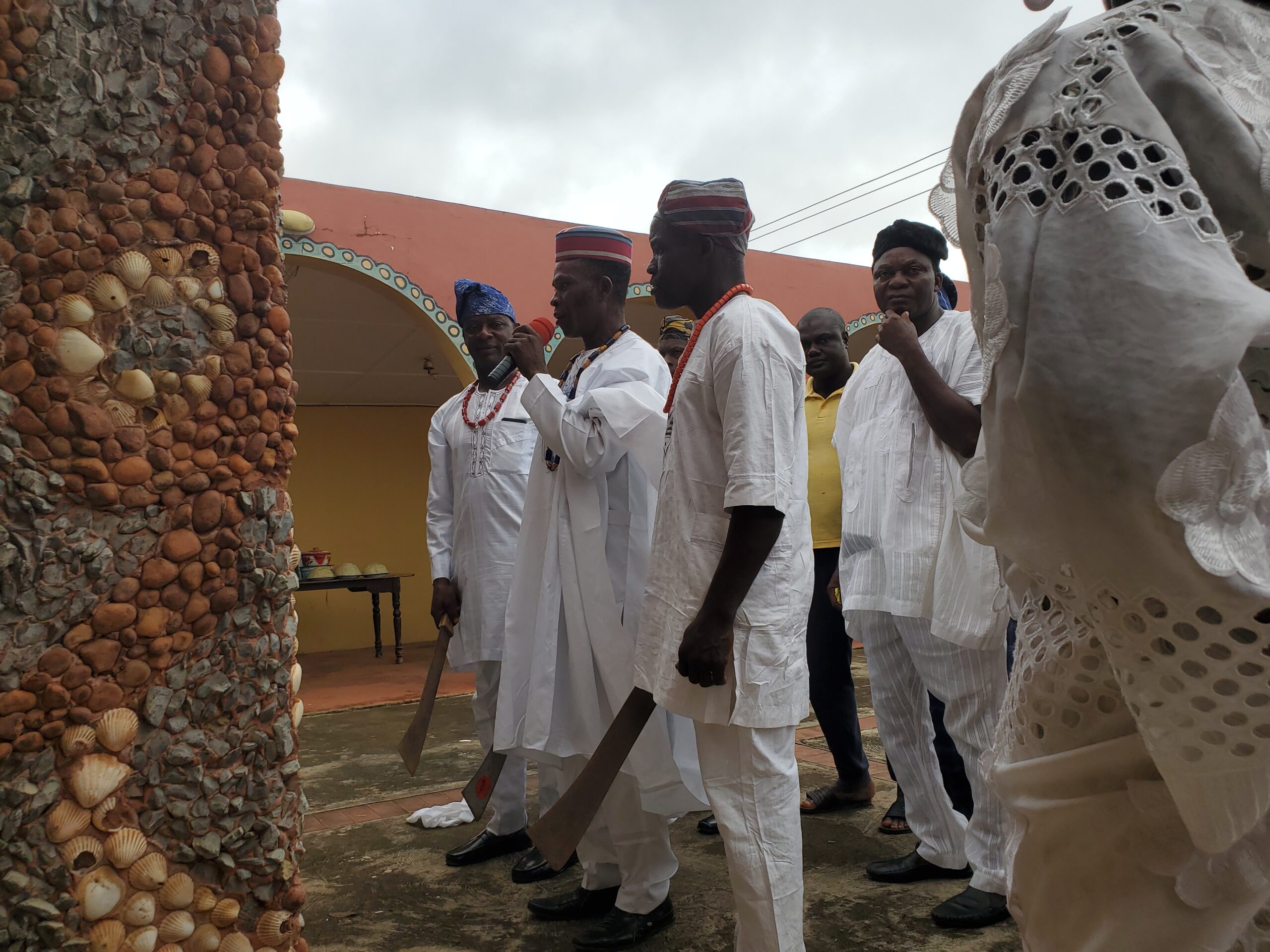
The male group did not assist the
situation either, and this reporter was still in awe of the women’s displays of adoration. Along with other males, three men, who were probably in their mid-forties, emerged carrying cutlasses. The male group’s leader reached out his cutlass to the king, who touched it. After striking with their cutlass, the three men alongside others began praising and praying to the monarch.
While the men (men) danced joyfully to their seats, the reporter questioned the need for these acts. The Public Relations Officer of the Iloko Descendants Development Association, Olatunji Olorunfemi better known as ‘Awoko’, told WITHIN NIGERIA that “this is culture.”
Following these performances, Odelusi Kehinde, the Aworo of Iloko-Ijesa, took the podium to thank the king and make prayers to him. He briefly discussed the festival’s importance.
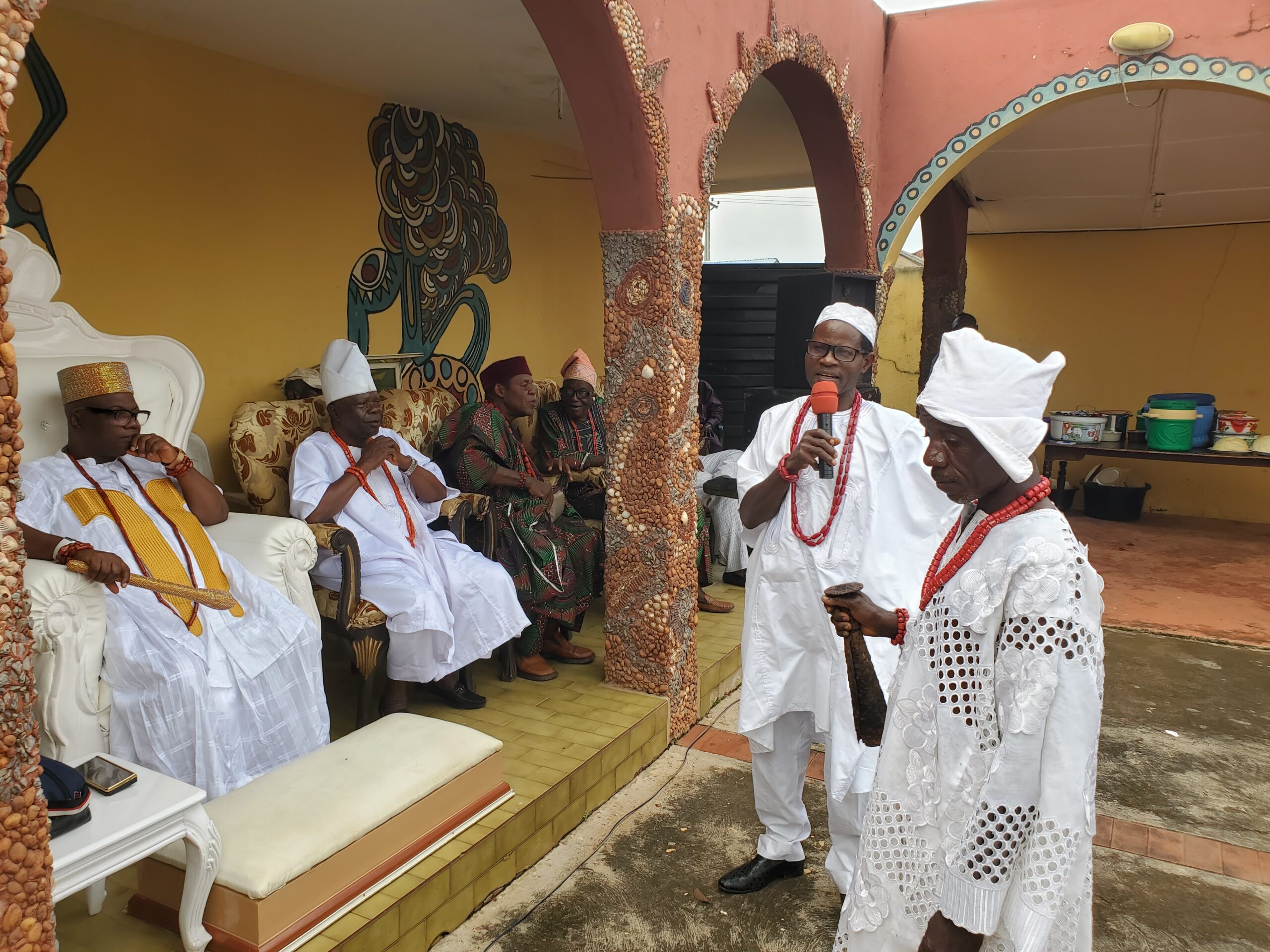
‘This holiday celebrates brotherhood and peace. If this event is not performed,
no native, not even the monarch, can consume yam or any of its variants. All of the yams that are consumed here are the result of our children’s agricultural labor.
According to the Aworo of Iloko-Ijesa, we are carrying out the practice exactly as it was done throughout the days of our festival so that we won’t miss out on the blessings that go along with it.
Akin Satiregun, one of the high chiefs known as Baba Aro of Iloko-Ijesa, was in responsibility of revealing a crucial aspect of the event, which was the display of any cuisine that could be made with yam.
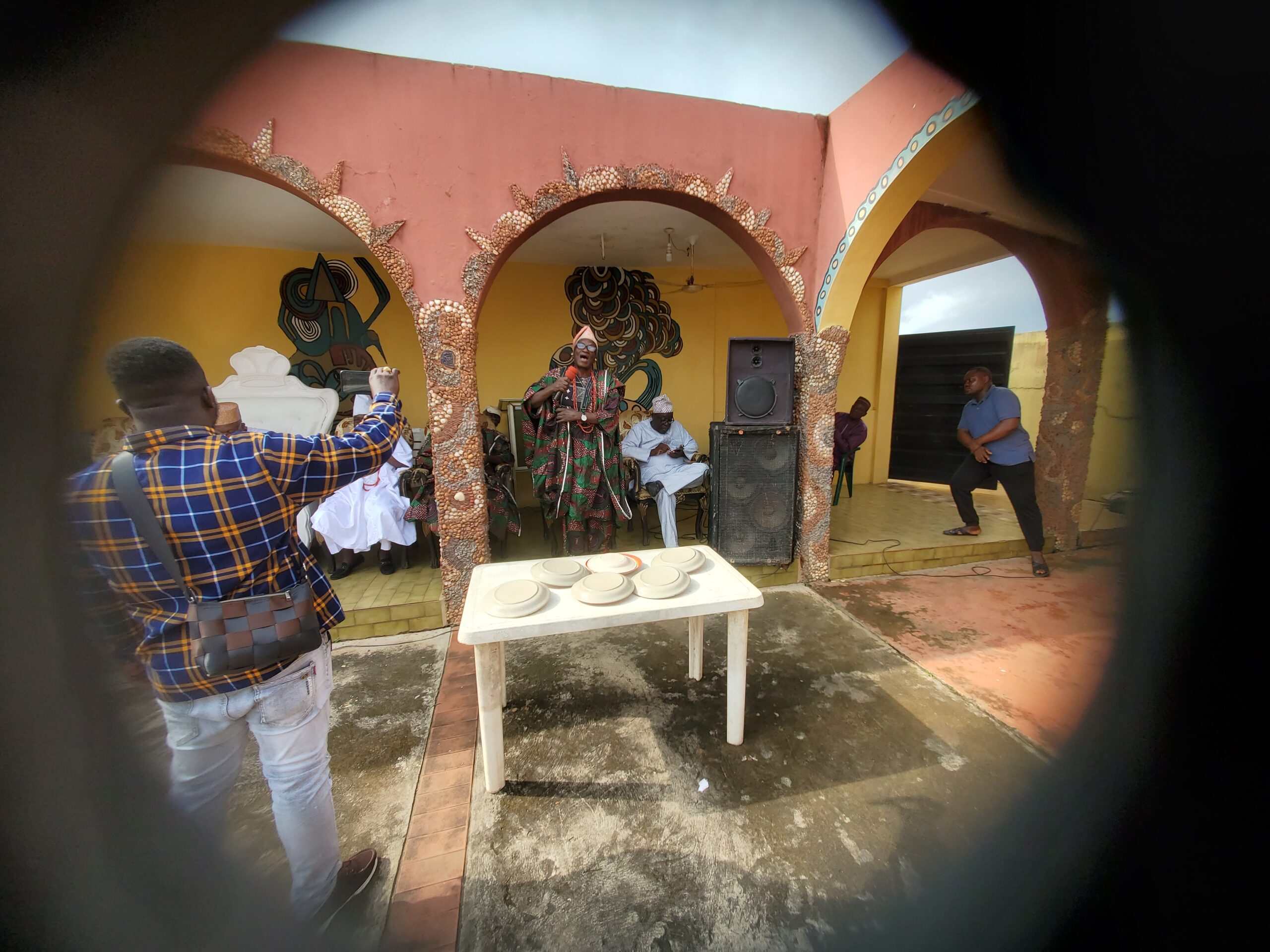
As he prayed for the monarch, locals, and the town as a whole, Baba Aro of Iloko-Ijesa
unveiled a variety of yam dishes, including pounded yam, roasted yam, Ojojo (a yam cake that resembles beans), and Asaro, among others.
Following Baba Aro of Iloko-Ijesa’s exhibition of Yam and delicacies, the chiefs of the historic town came out one by one to show respect to the king.
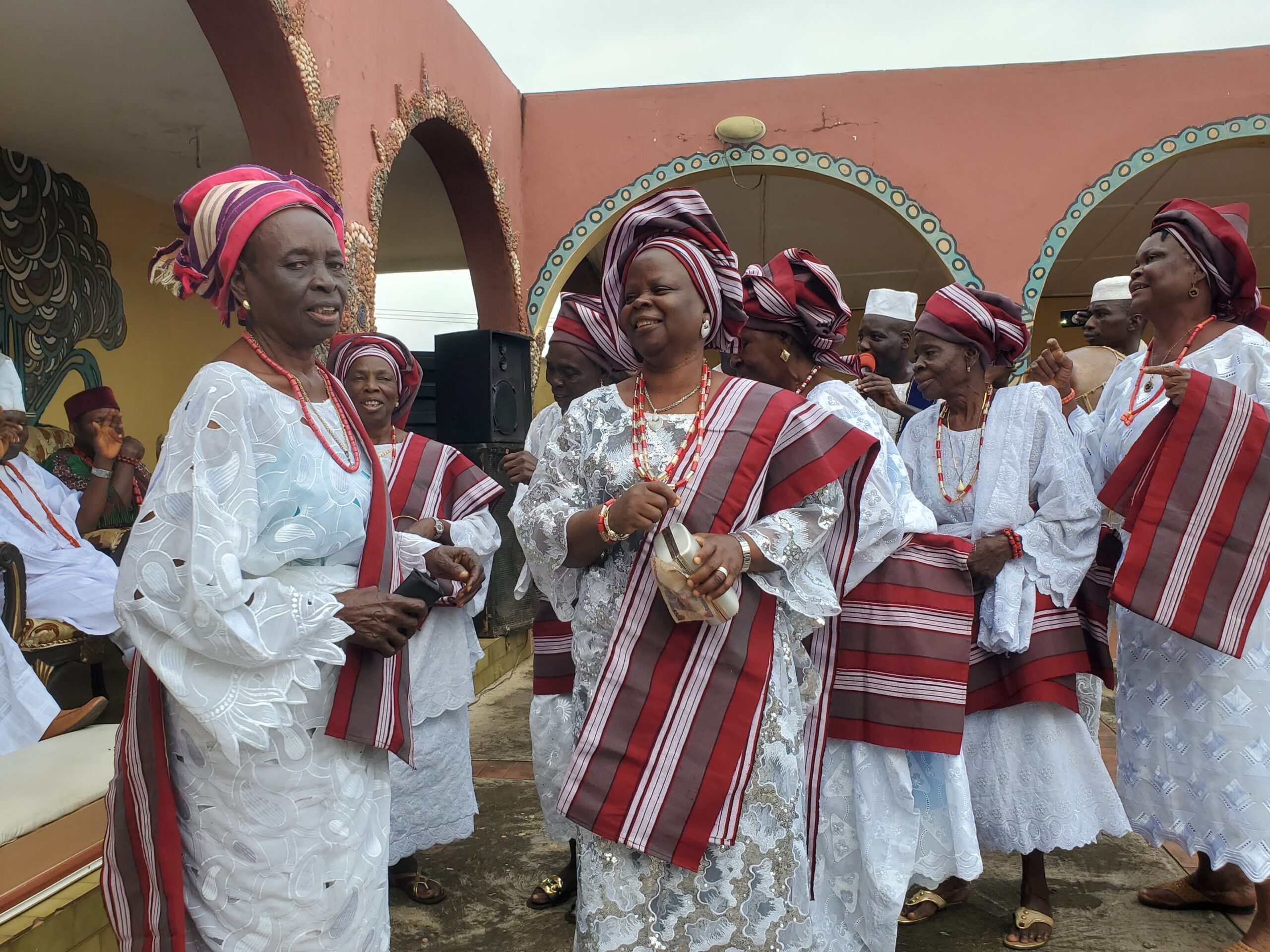
The Iya Aro of Iloko-Ijesa led female leaders
to pay respects to the monarch as well. Male and female leaders danced alongside the king and prayed for the people and the community as a whole.

Akin Satiregun, the Baba Aro of Iloko-Ijesa, picked up a piece of roasted yam, dipped it in a soup cooked from Igba (garden egg), and then put it in his mouth after praying for the neighborhood.
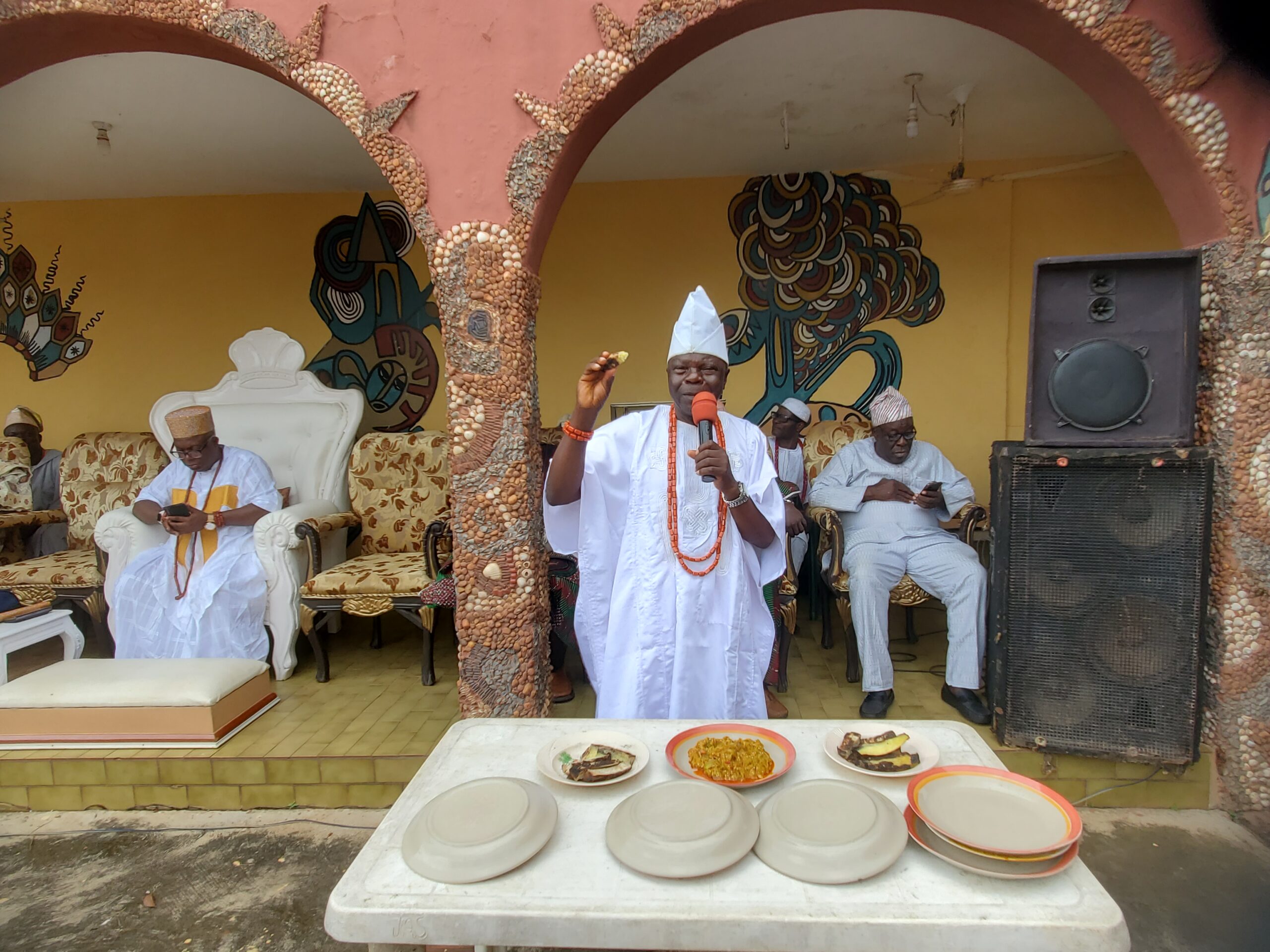
Other high chiefs, including Odofin, Sabe of Iloko, Ejemu of Iloko, and Yeye Solo representing Esemure, performed the exact same performance.
.
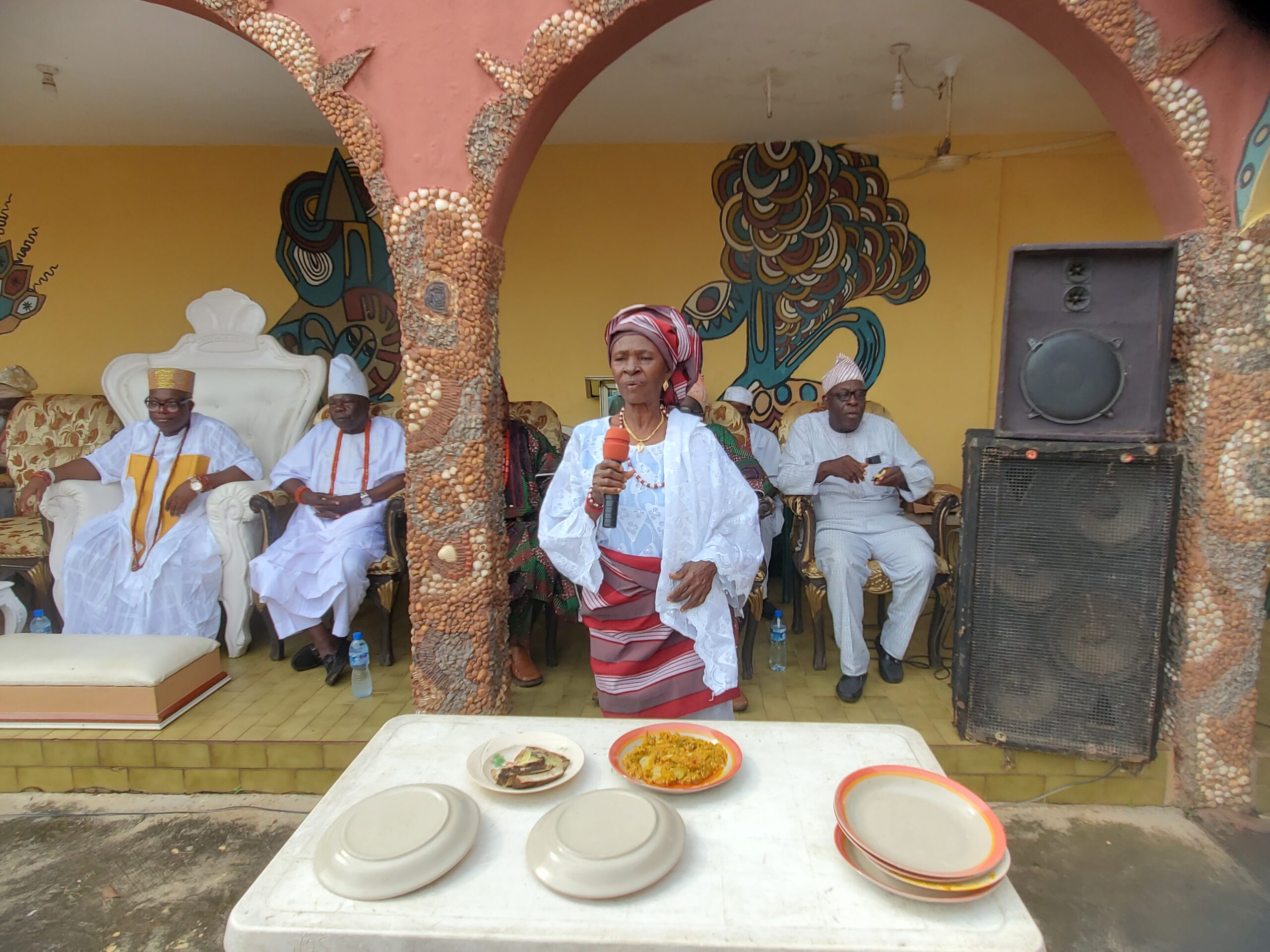
The Iloko-Ijesa chief, Oba Olusayo Akeem Ogungbangbe, got up, came over to the high table, and replicated what his chiefs had just done by dipping a piece of roasted yam inside Igba soup.
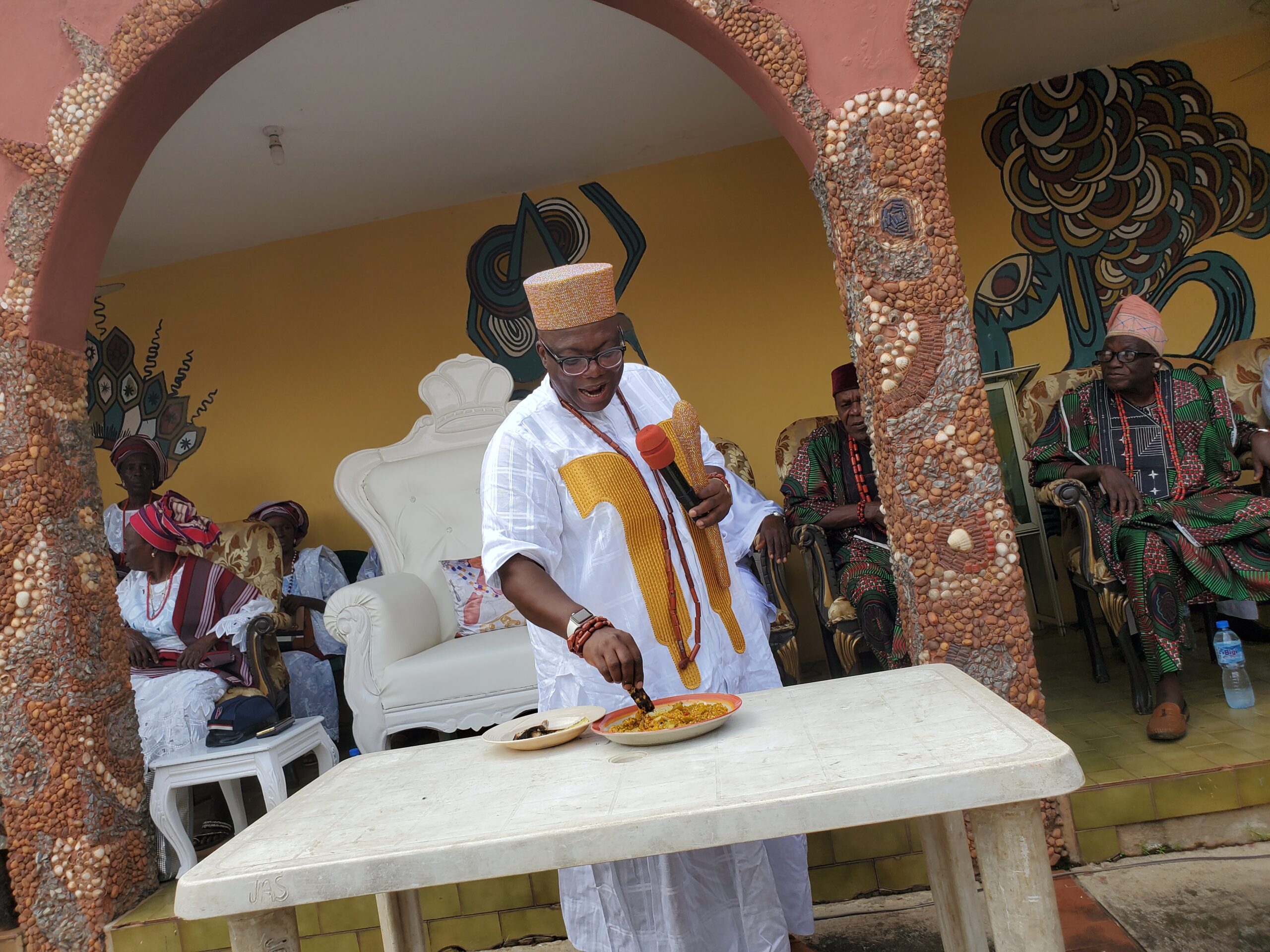
After the king completed his act, it was a season of prayers for the people and community. Both king, chiefs and people danced in their beautiful attires. The festive of dining and wining was declared open by the king as people were fed with different kinds of food made from Yam.
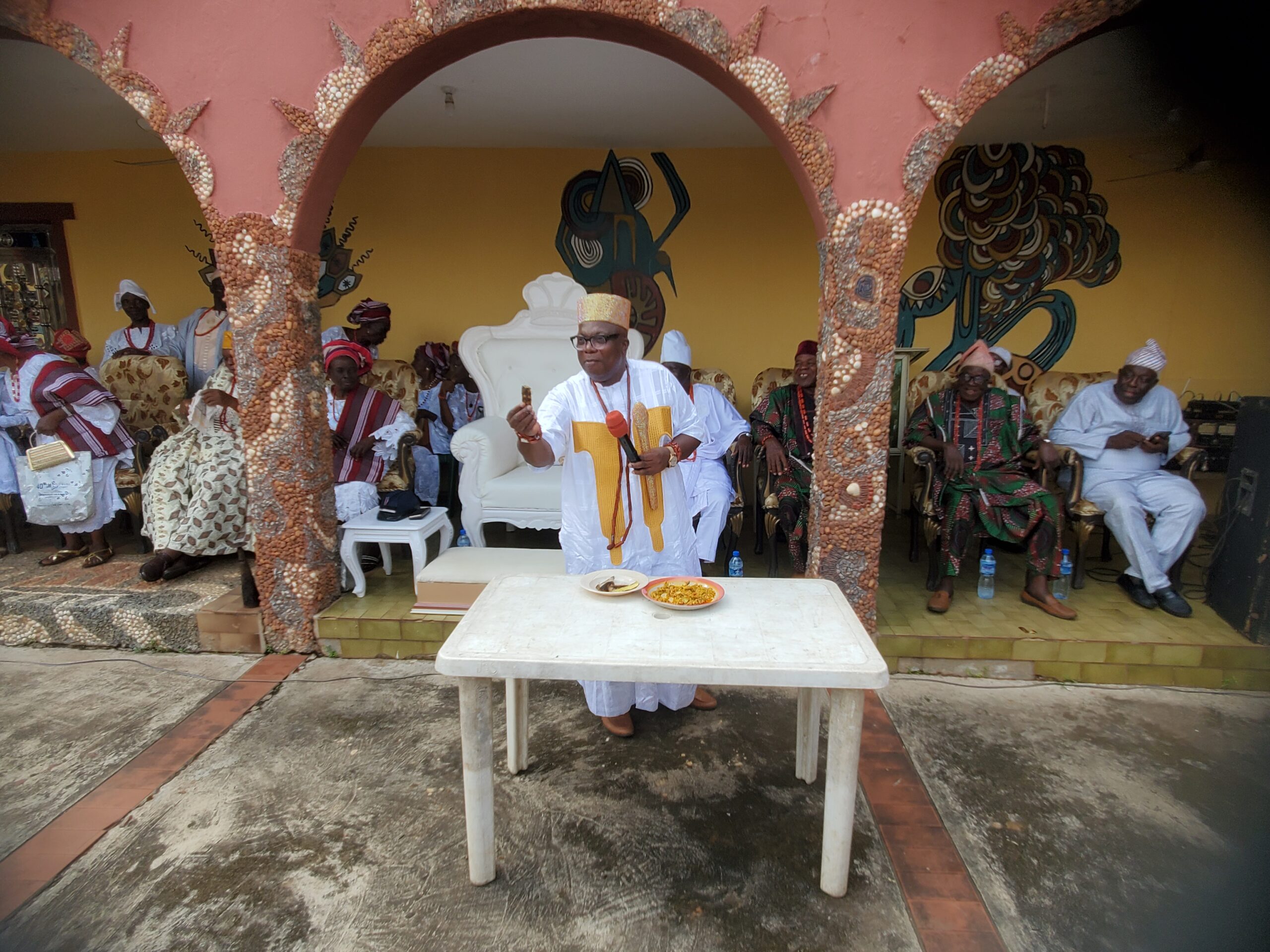
The Iloko-Ijesa kingdom’s paramount ruler, Oba Akeem Olusayo Ogungbangbe, addressed the festival attendees and thanked them for attending in large numbers.
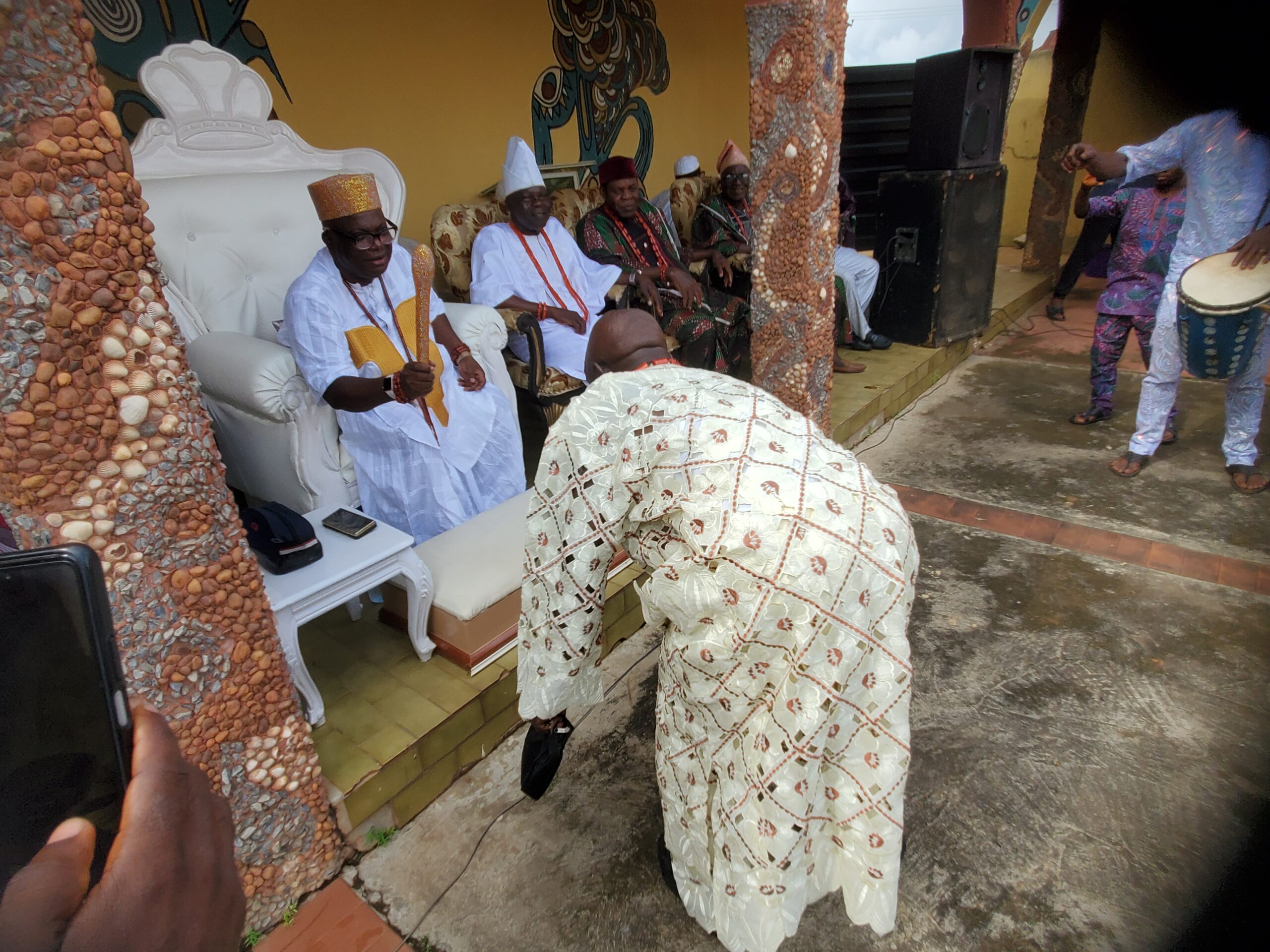
The New Yam festival, according to Oba Ogungbangbe, is a celebration of love, peace, and harmony. He also stated that the festival’s primary goal is to strengthen brotherhood.
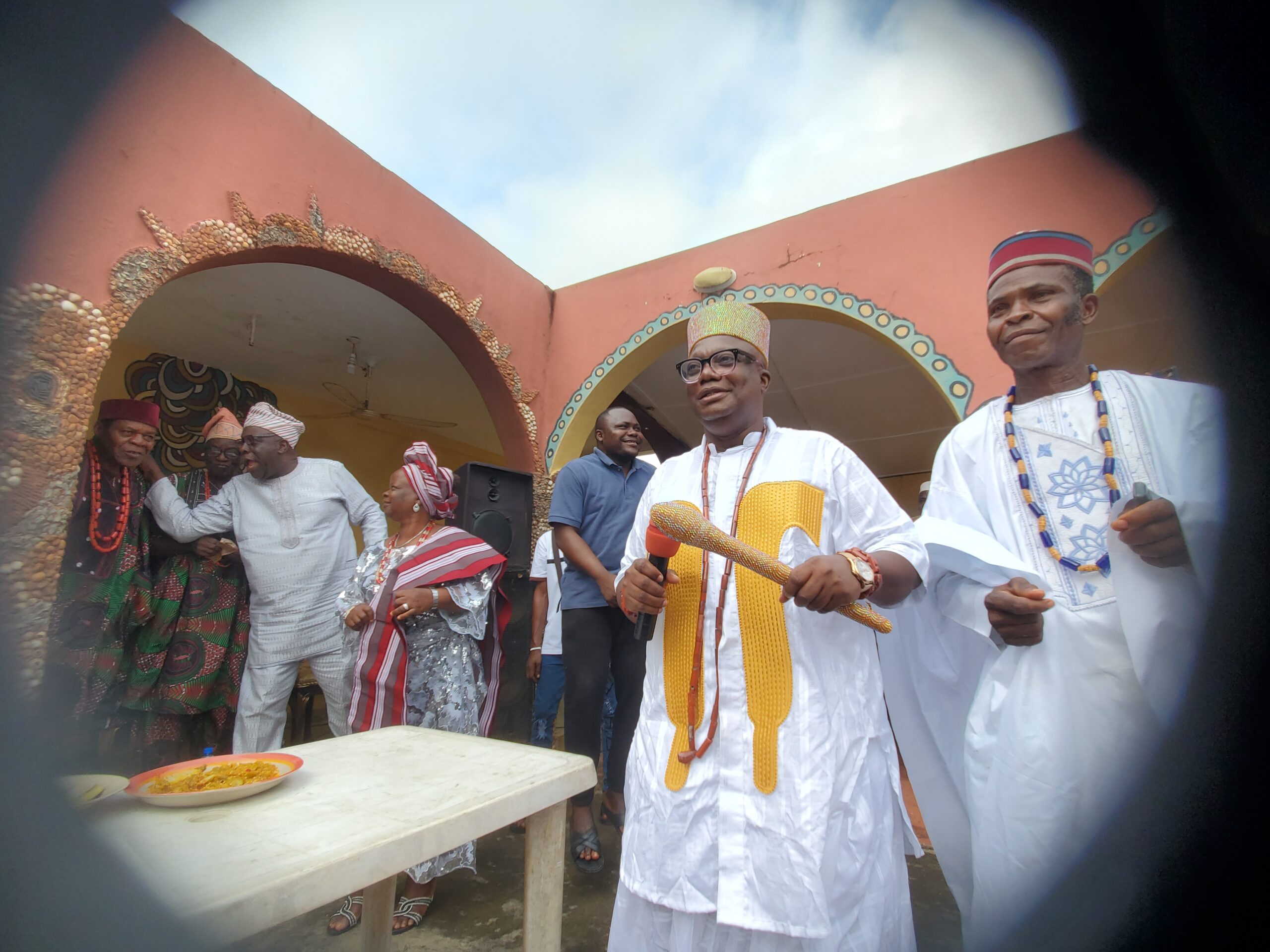
Before giving out pounded yam wraps to people, the first five portions of pounded yam were separated into ten parts and served to chiefs and visitors first.
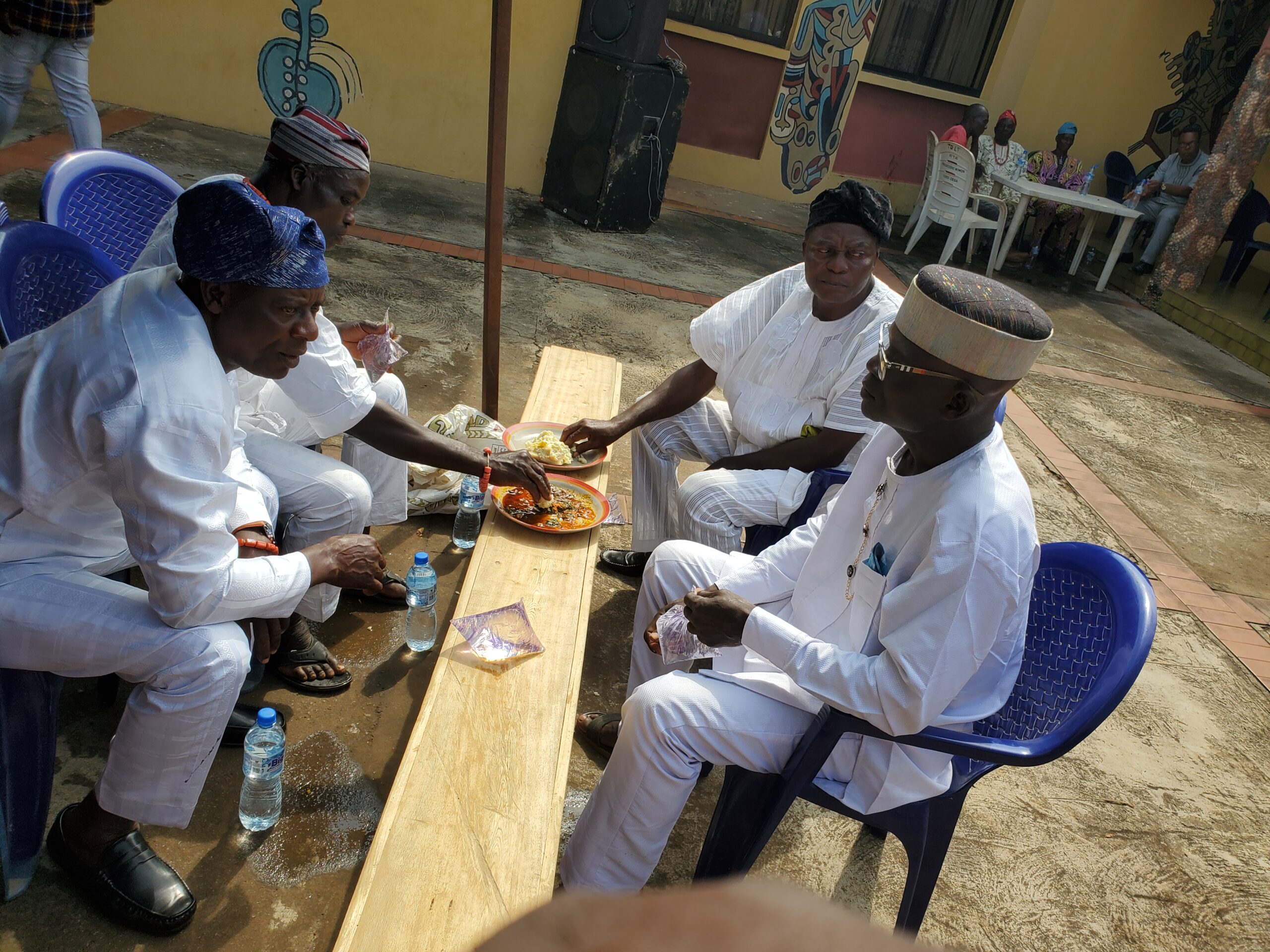
Observing the genuine satisfaction on people’s faces as he moved around the gathering, the reporter pondered how challenging it must have been for them to refrain from eating pounded yam all these time. Again, the reporter recalled Olatunji Olorunfemi, also known as Awoko, who said, “It’s culture.”
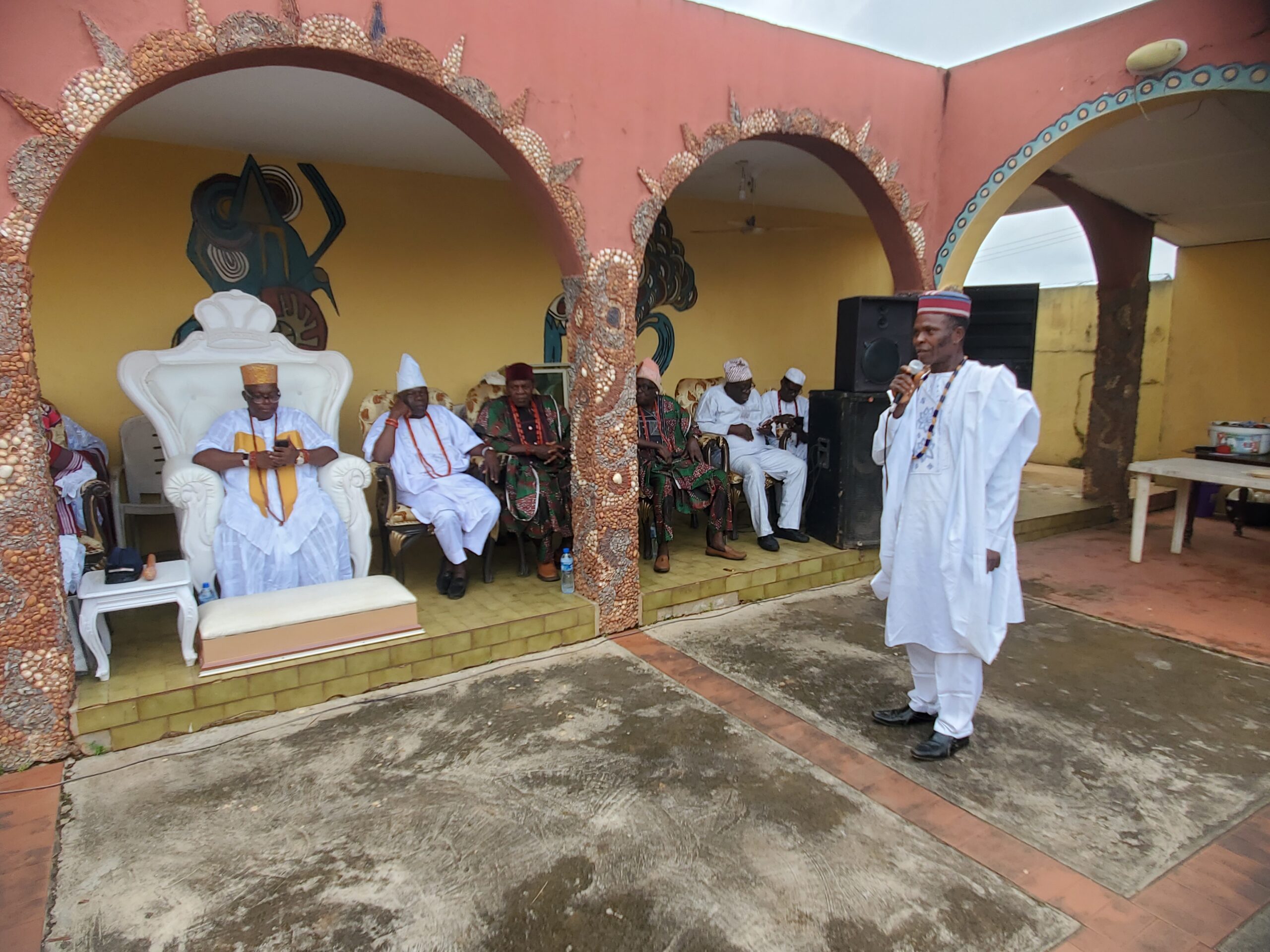
The Logan of Iloko-Ijesa told WITHIN NIGERIA that “The king, his chiefs and people are now free to eat Yam and any cuisine anafe from it.
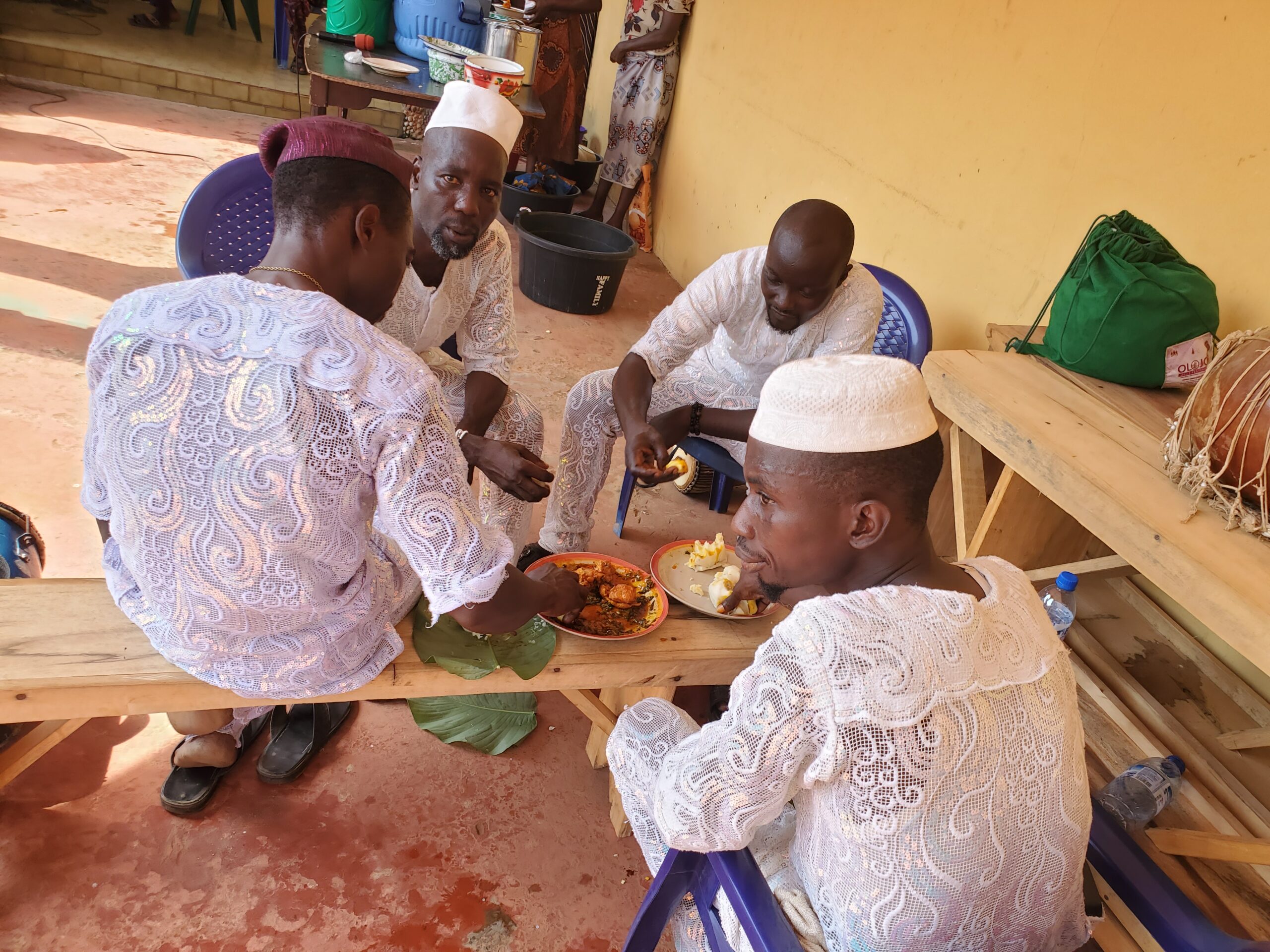
This reporter ate a mole of pounded yam and then realized he had previously eaten pounded yam twice. This reporter wondered aloud, “Have I committed a sacrilege?” as he left the gathering.
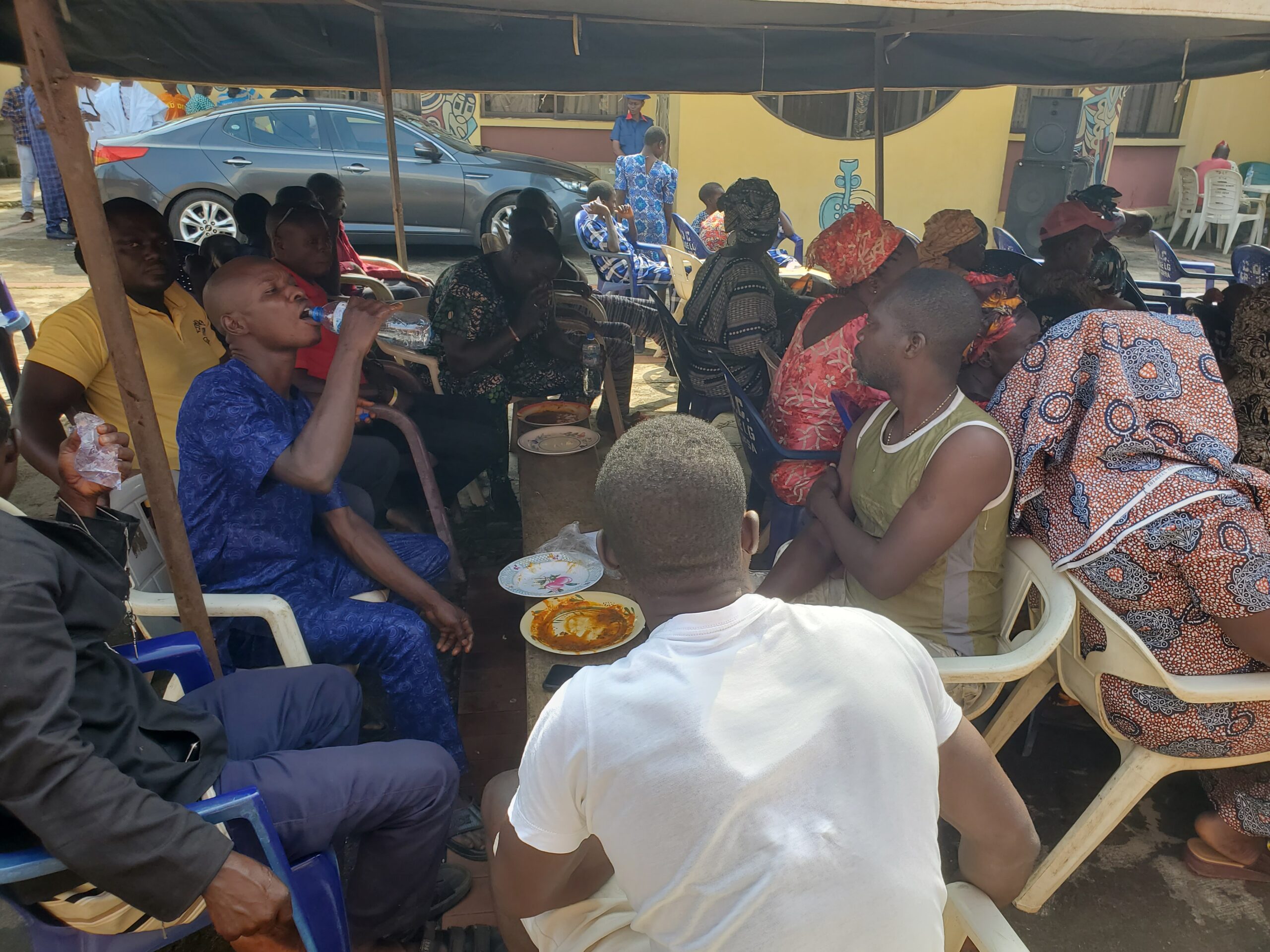
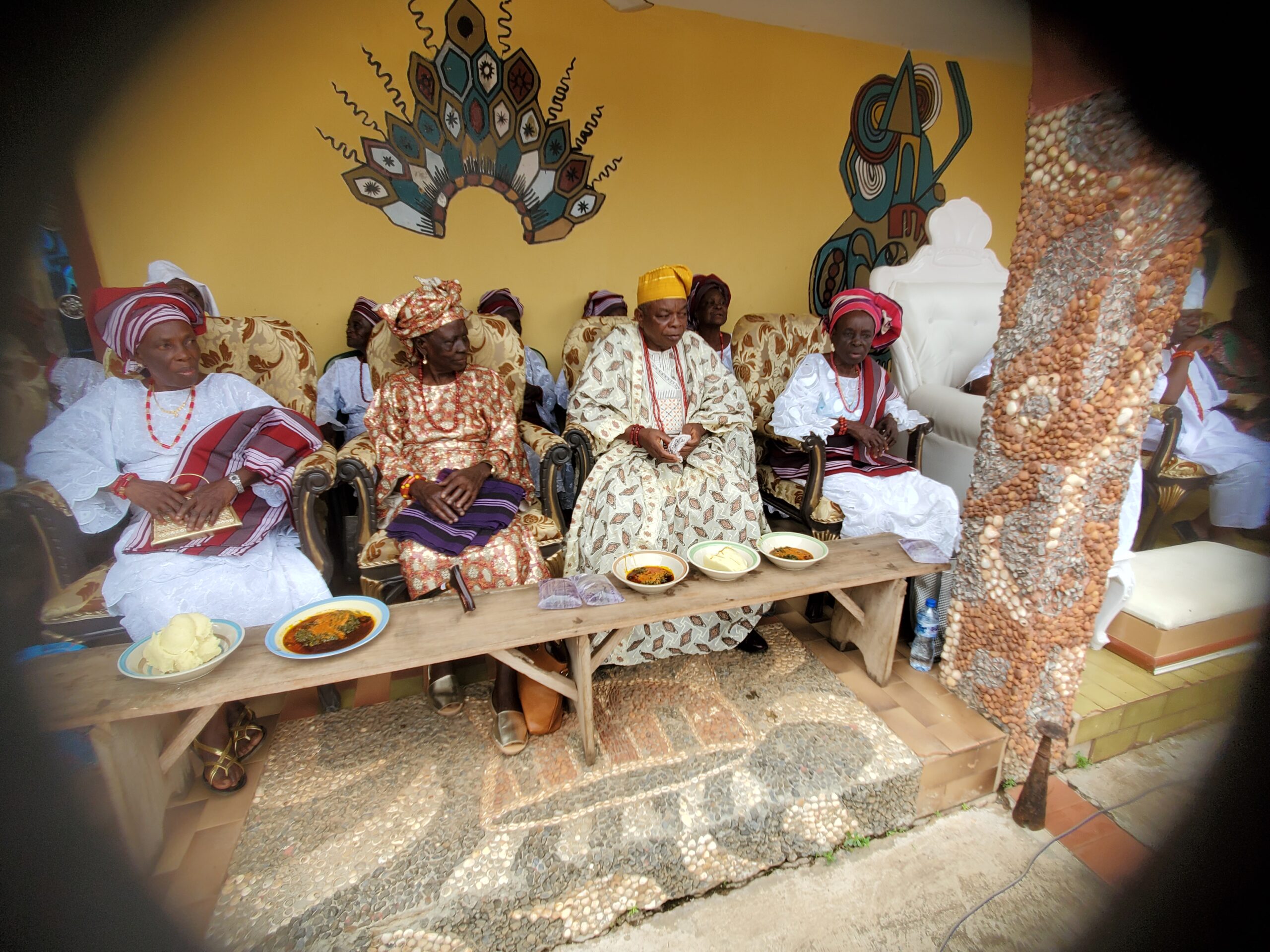
As he departs the event, the reporter declares, “I have not committed any error or sacrilege.”








